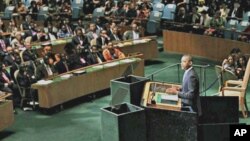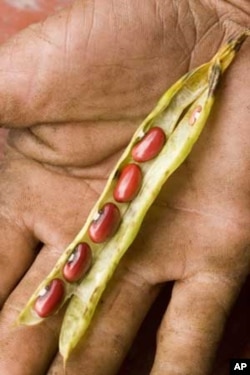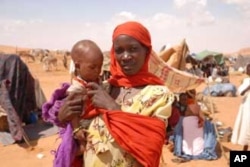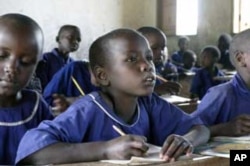The three-day U.N. summit reviewing the Millennium Development Goals (MDGs) is over, but the push to achieve them is not. Development activists continue to press for increased financial support from industrialized countries and for improved strategies for achieving the MDGs by 2015.
US policy
In an address to the United Nations General Assembly Thursday, President Barack Obama said U.S. policy will emphasize incentives for economic growth over food or financial aid, and encourage countries to come up with practical policies for achieving the Millennium Development Goals.
And, he reiterated the criteria set forth by the U.S. Agency for International Development for measuring the success of the MDG's: They include the use of new and sustainable technologies combined with mutual accountability and improved tracking of development outcomes.
Greg Adams is the Director of Aid Effectiveness at Oxfam-America. He welcomed President Obama's strategy for reaching the goals, though he says more needs to be done.
"A couple of things we need him to do," Adams said. "We hope he will work with Congress to re-write the laws regarding [U.S.] Government foreign assistance because right now they are a tangled web of conflicting authorities that we need to clear up.
And, we also hope President Obama will include USAID Adminstrator Rajiv Shah, in as many National Security Council meetings as possible. One of the aims of the new policy is to elevate the voice of development in overall government foreign policy and right now as the main foreign policy body in the White House sits down to talk, there is no development voice at the table."
Peer review
Oxfam urges donors, including the leading industrialized nations, or G8, to keep promises made at their summit in Glenneagles, Scotland, five years ago to increase aid by $50 billion by 2010. So far, the development group notes, only about $30 billion has been received.
It also wants to improve the accountability of national leaders for the progress made on reaching the MDGs.
Irungu Houghton, Oxfam's Pan Africa Director in Nairobi, Kenya, says peer review should be a part of the yearly year summits where heads of state gather to review the goals.
"[We should think] more creatively how the president of an African country could be questioned by an Indian or Brazilian colleagues or vice versa [as] an important way of developing a dialogue where no head of state would come to the forum without being very clear what the progress is and that they 've done all that they can during the course of the year to meet the MDG's," Houghton said.
Greater transparency
Development activists also advocate greater transparency as part of the fight against corruption – which inhibits the best laid plans for improving social services and living standards.
A recent report by the UN Economic Commission for Africa notes that 3% of Africa's public resources are diverted to private hands, and that the continent loses 60% in illicit capital flows to foreign tax havens.
Irungu Houghton, Oxfam's Pan Africa advisor, based in Nairobi, Kenya, stresses the need for greater transparency in business contracts.
"We know stories of Mobutu in (mineral-rich) Zaire [now Democratic Republic of the Congo] and in (oil-rich) Equatorial Guinea where there is a corrupt relationship between members of the government and transnational corporation executives," Houghton added. "This has begun to change especially in the context that [Uganda, Ghana and other African countries are] now negotiating a whole set of arrangements with the Chinese and other [Asian] countries to explore oil and other deposits. If handled well, [it] could mean these countries moving from least developed to middle income countries.
Houghton welcomes renewed efforts by industrialized nations to encourage openness in transactions between international companies and African governments. One such effort is a recent law passed by the US Congress that requires energy companies wishing to do business in the US to reveal all payments made to government officials. Oxfam encourages the African Union and other bodies to set up and enforce similar Publish What You Pay procedures for companies doing business in their region.
Sources of revenue
Oxfam also encourages donor countries to find alternative sources of revenue for supporting the MDGs. One, supported by France and Japan, would include a tax on world financial transactions, a proposal not supported by the United States.
The development organization warns that the development goals could be affected by a return to indebtedness. Houghton says many developing countries borrowed money at high rates from private banks for stimulus programs to cushion themselves from the global economic downturn.
But he says that's meant $60 billion in deficits, and the threat of a return of the widespread debt of the 1980's and 1990's. Houghton proposes the creation of mechanisms, or an institution, to monitor the degree to which national governments borrow from private sources, and advise them on how to borrow prudently.
He expects these, and other ideas, to be part of the debate at G8 meetings and other forums that focus on the boosting the global economy, and living standards.







